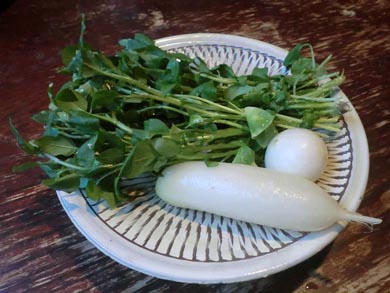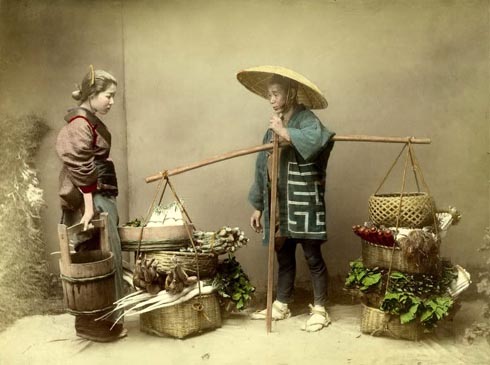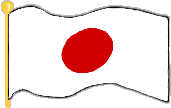いちじくにんじん
(Ichijiku Ninjin)
Ichijiku Ninjin is a traditional children's song from the Shizuoka Prefecture. It's a counting song that's a play on words (specifically the numbers one through ten in Japanese that sound like words for vegetables).
"This is a traditional children's song that's used as a bouncing ball song or a counting song. This is also good as a children's finger play. I am not sure when this song was composed, but I think this song has been sung for at least 100 years." -Sadao

いちじくにんじん
(Ichijiku Ninjin)
Figs & Carrots
(One-igs, Two-arrots)
Counting Song
Counting Song
(Japanese)
(English)
いちじく にんじん
さんしょに しいたけ
ごぼうに むかごに
ななくさ はくさい
きゅうりに とうがん
Figs, carrots,
Japanese pepper and shiitake mushrooms,
Burdock and bulbils* and
Seven herbs**, Chinese cabbage,
Cucumber and winter melon.
Notes
*Bulbils - A small bulb-like structure produced in the place of a flower that has the ability to develop into a new plant. These can be found on plants like garlic if they're left to grow.
**Seven edible herbs are eaten on January 7th to celebrate the upcoming Spring. The festival is called Nanakusa-no-sekku.
Pronunciation:
Ichijiku Ninjin
Sansho-ni Shiitake
Gobou-ni Mukago-ni
Nanakusa Hakusai
Kyuri-ni Tougan
Note: -ni means "and"
*****
Below you can see how this song is a play on words. Below is the number 1 - 10 with the word (of a vegetable) in the song that sounds like the number.
1. いち Ichi = One
Song word: いちじく Ichijiku = Fig
2. に Ni = Two
Song word: にんじん Ninjin = Carrot
3. さん San = Three
Song word: さんしょ Sansho = Japanese pepper
4. し Shi = Four
Song word: しいたけ Shiitake = Shiitake Mushroom
5. ご Go = Five
Song word: ごぼう Goboh = Burdock
6. ろく Roku = Six
Song word: むかご Mukago = Bulbils (see * note above)
From old counting word: むっつ - Muttsu
7. しち Sichi or Hichi = Seven
Song word: ななくさ Nanakusa = Seven herbs
From old counting word: ななつ - Nanatsu
8. はち Hachi = Eight
Song word: はくさい Hakusai = Chinese cabbage
9. きゅう Kyuu = Nine
Song word: きゅうり Kyuri = Cucumber
10. じゅう Ju = Ten
Song word: とうがん Togan = Winter melon
From old counting word: とお - Toh
*****
Here's a non-literal translation showing one way the sounds of numbers can be made into vegetable words in English:
One-nion, two-cumber,
Three-ng-beans and fours-radish
Five-a beans, Six chard
Seven herbs and eight-plants,
Ba-nine-a and t-endives.



Thanks!
Thanks and Acknowledgements
Thanks to Sadao Mazuka for sharing this song with us, for the midi, comments and notes about numbers in Japanese! Translations by Lisa Yannucci.
Photo at top: Nanakusa (seven herbs) for Festival of Seven Herbs of Japan - by Nissy-KITAQ, cc.
Photo 2: Hand painted Albumen of Japanese Vegetable Peddler by Kusakabe Kimbei, circa 1880's.
Arigato gozaimasu! 

























